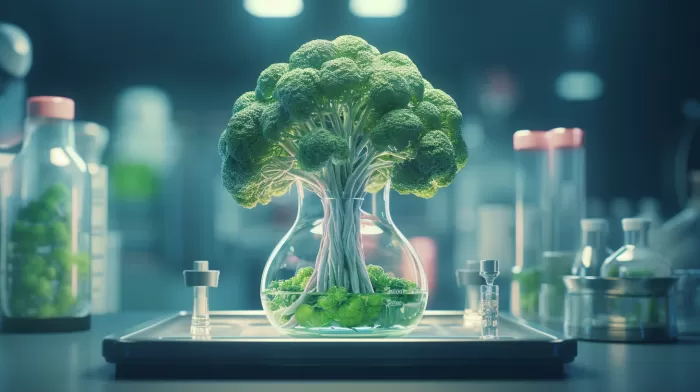Imagine a world where a simple change in diet could prevent or even treat cancer. It might not be too far away. Researchers have been uncovering the cancer-fighting potential of a supervegetable packed with potent natural chemicals.
Broccoli – A Cancer-Fighting Superstar
Broccoli, along with its cruciferous vegetable family members cauliflower and cabbage, is an excellent source of many important nutrients, including those that combat cancer. In particular, researchers from Oregon State University and the Texas A&M Health Science Center have been studying the potent power of sulforaphane, a phytochemical found in broccoli.
Studies on sulforaphane show promising results for the treatment of advanced prostate cancer. Researchers are gaining a better understanding of how this phytochemical interacts with cancer cells and believing that, in the future, it could be used both for cancer prevention and treatment of existing tumors.
How Sulforaphane Works Against Cancer
Sulforaphane’s cancer-fighting potential lies in its ability to alter histone methylation, an essential molecular process responsible for influencing genetic material. This alteration can impact how cancer cells spread.
One of the first times this effect has been demonstrated is in a study by researcher Emily Ho and her team at Oregon State University. They found that sulforaphane can help to re-express tumor suppressors by affecting histone methylation and altering gene expression in metastasizing (spreading) prostate cancer cells. This change ultimately led to the selective death of cancer cells and the slowing of disease progression.
This groundbreaking study not only provides evidence for the value of cruciferous vegetables in cancer prevention but also reveals a new understanding of how sulforaphane can address the genetic components of cancerous cells.
Targeting a Key Enzyme in Prostate Cancer
Another significant aspect of the research on sulforaphane’s cancer-fighting potential is its effect on a particular enzyme produced by prostate cancer tumors, known as SUV39H1.
The scientists discovered that sulforaphane has a direct impact on SUV39H1. By altering this enzyme, the phytochemical may help prevent cancer. Furthermore, armed with this new knowledge, new drugs could be developed that target and dismantle SUV39H1 to treat prostate cancer specifically.
More Reasons to Eat Your Vegetables
The cancer-fighting potential of broccoli and other cruciferous vegetables is just one of many reasons to include these nutritious plants in your diet.
Rich in vitamins, minerals, and fiber, broccoli is an excellent source of vitamin C, vitamin K, potassium, and antioxidants, all of which provide countless benefits for overall health.
Moreover, consuming cruciferous vegetables has been shown to lower the risks of other chronic diseases such as heart disease and diabetes, further supporting the idea that a diet high in vegetables like broccoli can have significant health benefits.
Getting the Most from Broccoli
To reap the full benefits of sulforaphane and other cancer-fighting compounds, try eating these tips:
- Eat broccoli raw, steamed, or lightly sautéed to maintain nutritional content. Overcooking can reduce the amounts of sulforaphane and other essential nutrients.
-
Chop, crush, or chew broccoli thoroughly before swallowing. This allows the plant’s cell walls to break down, which aids absorption and releases the sulforaphane for optimal bioavailability.
-
Pair with foods, such as mustard seeds, horseradish, or other foods containing the enzyme myrosinase, which has been shown to increase sulforaphane levels in the body.
With such powerful potential to prevent and treat cancer, incorporating sulforaphane-rich foods like broccoli into your diet should be an essential part of a nutritious and health-boosting meal plan. So, don’t hesitate to add that extra serving of broccoli to your plate – it just might save your life!



